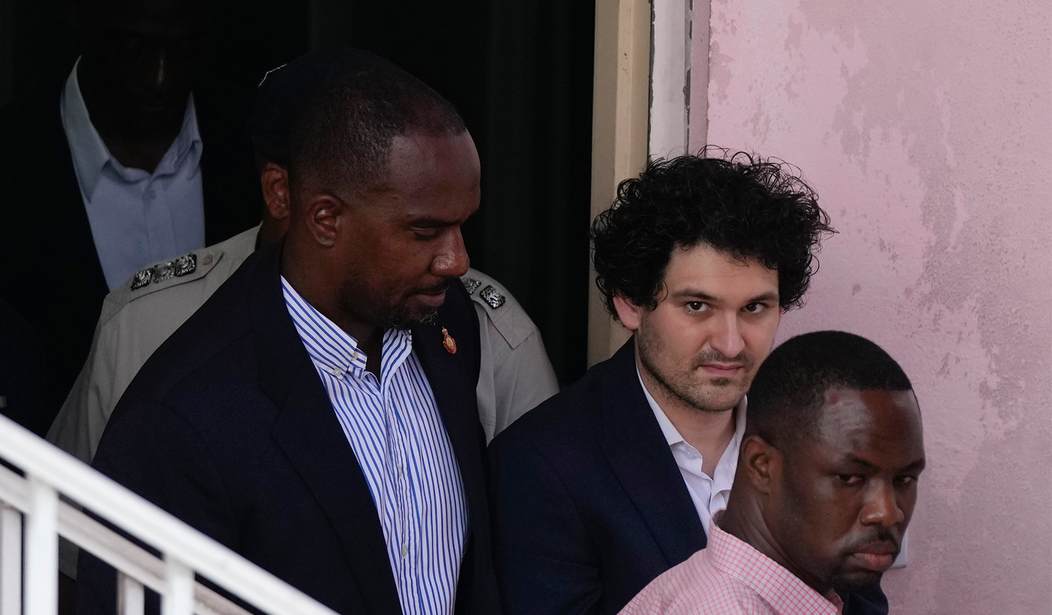That didn’t take long. The trial of crypto-scammer Sam Bankman-Fried came to a rather dramatic close yesterday after nearly a year of legal wrangling. The jury of nine women and three men was only out for four hours before coming back with guilty verdicts on all seven counts of fraud and conspiracy. SBF has now officially been convicted of stealing a staggering 10 billion dollars from investors, potentially earning him a spot in the Guinness Book of World Records for the biggest heist in history. He won’t be sentenced until the end of March, but when he is he will face up to 110 years in prison. This may bring some closure for the defrauded investors, but many still seem confused as to how he managed to do this and exactly what it was that he did (NY Post)
Now you can call him Sam Bankman-Fraud.
A Manhattan federal jury Thursday convicted Sam Bankman-Fried of stealing $10 billion from users of his crypto exchange and lying to lenders and investors — capping a fall from grace for an ex-billionaire once viewed as one of the crypto world’s brightest stars.
The tech mogul was found guilty on all seven fraud and conspiracy charges for his scheme to swipe money from users of his FTX exchange to pay off debts at his failing hedge fund Alameda Research and purchase lavish real estate — leading to FTX’s implosion roughly one year ago, which left thousands unable to withdraw their funds.
SBF’s attorneys will almost certainly take his conviction to the 2nd U.S. Circuit Court of Appeals for review. The odds of him being allowed to go free or even return to house arrest during the appeal seem to be low. The courts have already responded skeptically when his lawyers objected to him being imprisoned while awaiting trial and he has a demonstrated history of being a flight risk. SBF is 31 years old now, so he would be nearly 90 upon his release if he only receives half of the maximum sentence. (Unless he qualifies for parole sooner, of course.)
The jury quickly and decisively seemed to agree with most of the public that SBF was guilty of something, but it’s still difficult to say exactly what happened and how he did it. I’ve watched a few financial analysts bat this around and most everyone agrees that he set up an exchange where people traders could buy and sell crypto. But in the background, he and another member of his team set up a way to funnel money from the exchange into his Alameda Research hedge fund.
From there, the money found its way into sprawling, personal real estate purchases, or just into SBF’s pockets. He used it to lavish exorbitant gifts on charities and political beneficiaries, primarily Democrats. They were so overwhelmed by the “golden boy” that they apparently never thought to ask where all of that cash was coming from. He was the Belle of the Ball at many high-profile political events.
Some of SBF’s political beneficiaries gave the money back after finding out how dirty it was, but not all of them. Some, like Kirsten Gillibrand of New York, kept the money but vowed to give it to charity instead. I couldn’t really argue with the decision at the time. After all, what’s the point of returning money that you know will simply disappear down the same rat hole again? Someone might as well benefit from it.
This has to have been an embarrassing episode for all involved. SBF was viewed as the wunderkind of the crypto world and he was going to prove to everyone that “crypto works” and might replace money. His curious office habits and odd manner of dress made him a favorite of the media. And as long as he kept handing out massive checks to politicians and charities, nobody wanted to ask too many questions. But it was all an illusion and investors were building their dreams on sand. Now the spell has been broken and Sam Bankman-Fried will be going away for a very long time, potentially the rest of his life. But what changes have been put in place to ensure this doesn’t happen again? I’m rarely in favor of more federal regulation, but the entire cryptosystem could probably use a regulatory overhaul.









Join the conversation as a VIP Member